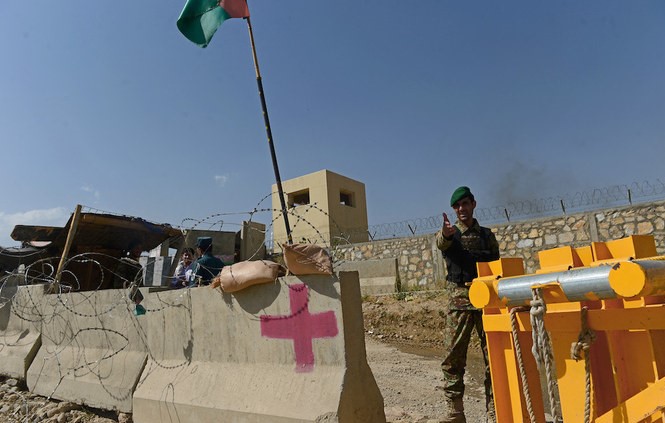LONDON: About 200 former Afghan special forces whose anti-Taliban operations with Britain’s military were “incredibly important” have been denied relocation to the UK, the BBC reported on Monday.
A further 32 former government officials, as well as a number of civilian leaders who aided Britain’s mission in the country, have also been denied by the Afghan Relocations and Assistance Programme.
The former soldiers’ “abandonment” by the UK government has been labeled a “betrayal” and “disgrace” by senior British military figures, including Gen. Richard Barrons, who served in Afghanistan for more than a decade.
He told the BBC that the UK’s failure to relocate the former soldiers “is a disgrace, because it reflects that either we’re duplicitous as a nation or incompetent.”
Barrons added: “It is a betrayal, and the cost of that betrayal will be people who served with us will die or spend their lives in prison.”
The UK’s then-Prime Minister Boris Johnson in 2021 described the work of the former Afghan special forces as “incredibly important.”
Britain set up two major units composed of elite Afghan soldiers in an effort to combat opium production and the Taliban presence in Afghanistan.
Commando Force 333, and its sister unit, Afghan Territorial Force 444, were known as “the Triples,” and “quickly gained a reputation for effectiveness, honesty and courage,” the BBC reported.
One of the former CF333 members, known as Ali, described being “abandoned and betrayed” by the UK after spending “day and night” together with British soldiers.
He added: “During training we slept under one tent, eating from the same dish. During operations we fought shoulder-to-shoulder with the British, as members of one family.”
During the evacuation from Kabul in August 2021, Ali oversaw the protection of British passport holders as they left the country on emergency flights.
But he was denied entry on the same flights, and eventually fled to Pakistan by land out of fear of reprisal attacks from Afghanistan’s new Taliban rulers.
“We never thought that heroes would be abandoned. We took all those risks. We were ready to help the international community, we respected freedom of speech and human life, then everything turned upside down. It is really disappointing,” he said.
Figures compiled by a network of Afghan veterans, seen by the BBC, show that there are up to 200 other former soldiers in the same position as Ali. Their applications to Britain’s ARAP scheme have faced delays or rejection.
Civilian leaders who helped Britain’s mission in Afghanistan have also been denied by the scheme.
Among them is Mohammad Fahim, a former governor of Helmand province’s Garmsir district, a key Taliban stronghold before 2001.


